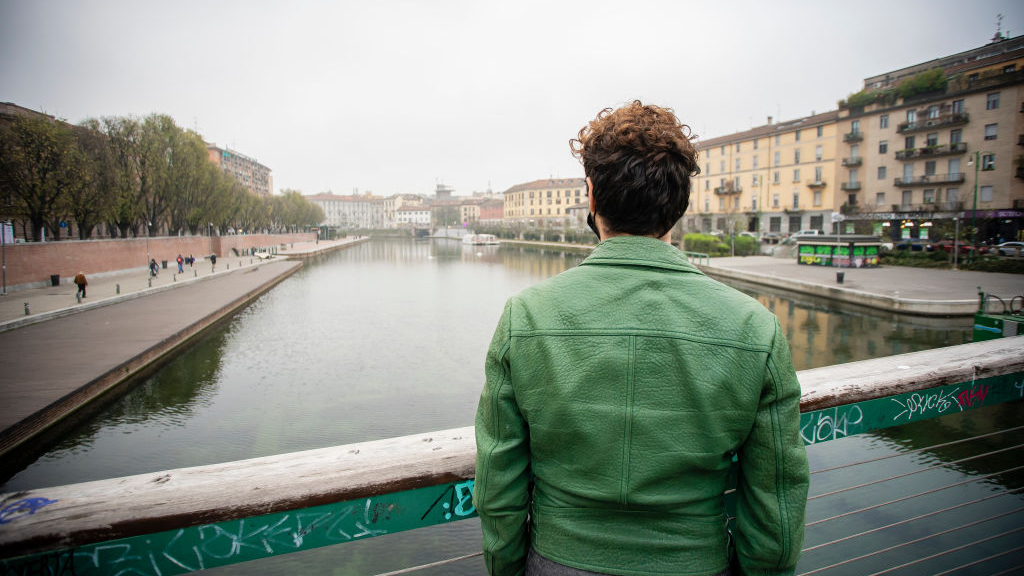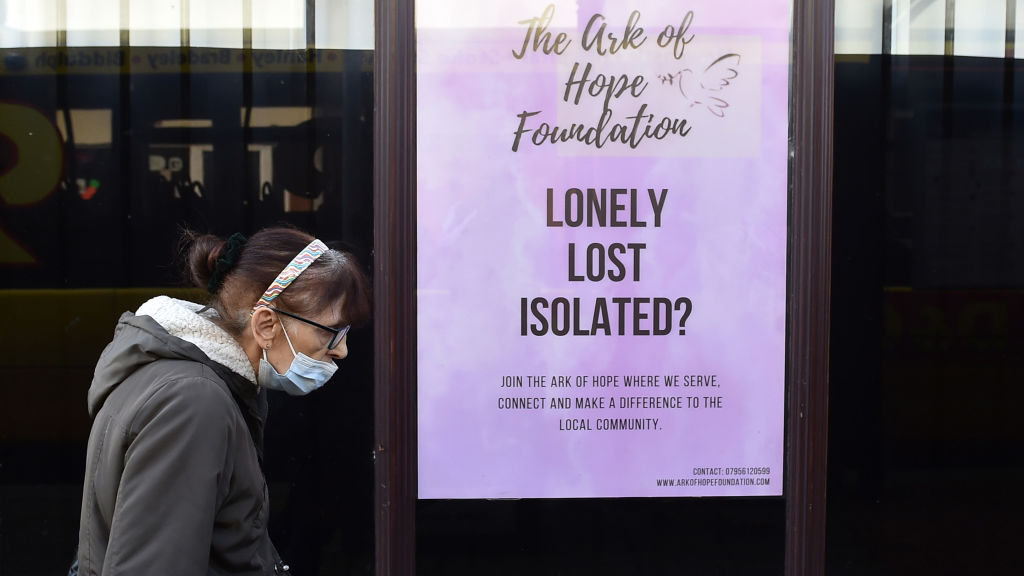
A man looks at the half-empty Darsena during the Milanese lockdown amid the COVID-19 pandemic, Milan, Italy, November 11, 2020. (Photo: Getty)
We often tell ourselves not to panic in a weary situation. But truth be told, pulling through a pandemic is never easy, especially as the world battles another contagion – mental illness. A study found that 20 percent of coronavirus patients develop some form of psychiatric disorder in a period of three months.
Aside from depression, a harrowing study conducted by University of Miami Professor Viviana Horigian revealed that COVID-19 has caused an uptick in loneliness among Americans. The survey consisted of a little over 1,000 respondents in the age range of 18-35 and 65 percent of the respondents reported symptoms of loneliness.
So, what exactly is causing people to feel so lonely? Emphasizing on the importance of comorbidity is crucial here. Individuals experiencing anxiety may simultaneously be reporting symptoms of chronic loneliness. Depression and anxiety can very well be causes of loneliness too.
The world in general is not accustomed to the characteristics of a global pandemic. Therefore, seeing drastic psychosocial and economic changes come to fruition have taken many aback. These factors consist of compassion fatigue – the inability to empathize with people during a health crisis, abrupt job loss, losing a loved one to COVID-19, adhering to a monotonous lifestyle and not being able to experience life as usual.
Even those who ended their personal relationships during the pandemic have suffered a great deal of mental trauma. The pandemic demands that we stay close to those we love. Hence, not having a solid support system to depend on in times of need could likely cause chronic loneliness.
People living by themselves run the risk of developing adult separation anxiety, homesickness, depression and loneliness, depending on their circumstances. Not having a proper social network or a circle of close family and friends threatens their personal safety and psychological well-being.
The pandemic has absolutely destroyed the norm of physical interaction. Our only means of communication for now are social media and video conferencing apps. Although these outlets provide the world with some glimmer of hope, they aren't entirely fulfilling our need to be around those we love.
Even helpline centers specializing in mental health services have reportedly been overwhelmed this year – causing more concern about the general well-being of people. An influx of individuals requiring mental health counseling only indicates that their mental and physical well-being are at stake.
Combating loneliness in times of distress is difficult but certainly not impossible to do. People living far-off from their families should make a conscious effort to visit them and spend time with them until the pandemic subsides. Having family support in a physical setting is more empowering than simply communicating over phone or video calls.

A sign by a charity called the Ark of Hope Foundation, as Staffordshire prepares to move into Tier 2 COVID-19 in Stoke-on-Trent, Staffordshire, England, October 28, 2020. (Photo: Getty)
If, for some reason, you don't have the support you need, invest some time to care for yourself. Unplug from things that are causing you to be lonely. Read a good book or watch motivational videos that invoke positive sentiments. Map out a daily plan to take part in recreational activities such as cooking, practicing yoga and listening to good old music. Switch things up every week to avoid monotony.
If you happen to live in an apartment or a close knit community, connect with your neighbors and seek their advice if needed. Build a small social network around you. Call someone you know and have needful discussions. Don't be afraid to express yourself.
Governments need to devise a short-term plan that grants low income earning households with subsidies and financial relief packages. These efforts would at least relieve families of some financial burden.
It is also imperative for colleges and universities to have psychologists on board to keep students motivated about life. Having mandatory one hour student-counselor sessions after class via Zoom or Skype is necessary.
Non-governmental organizations should direct more attention towards the mental health sector, and collaborate with hospitals, schools, workplaces and helpline centers to better address the mental health challenges that people have a hard time coping.
Even then, if you feel helpless or experience suicidal ideation, there are always helplines available 24/7 that you can depend on. More importantly, know that COVID-19 is temporary. There is a life that exists beyond this pandemic. So, be optimistic about the future, and remember that nobody can help you but yourself.


